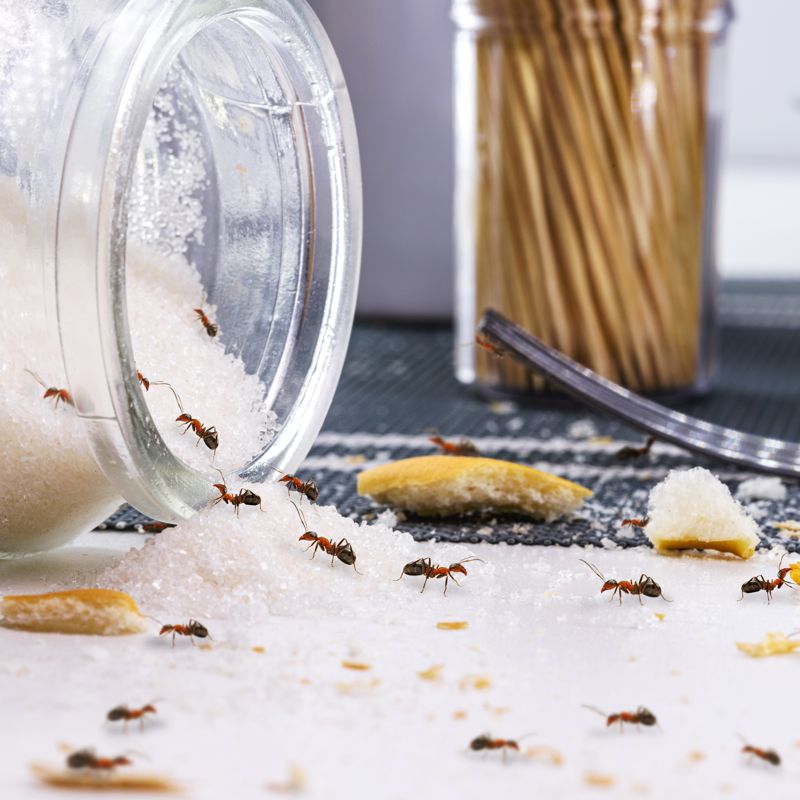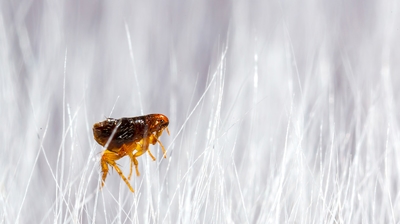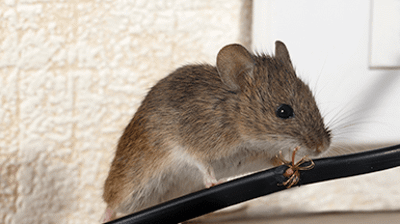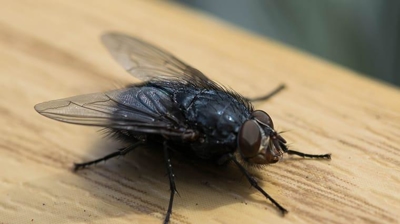House Mice
An adult house mouse ranges in size from 5-1/2 to 7 inches in length; this includes their tail which is dark, scaly, and has a light layer of fur on it. They vary in color and can have gray, black, or brown colored fur covering their bodies, with lighter tan colored bellies. House mice have pointed muzzles, small dark colored eyes, continuously growing incisors, large ears, and short, broad feet. House mice can also be identified by their droppings which are rod shaped with pointed ends, likely have small hairs in them, and are about 1/8 to 1/4 of an inch long.
Where are house mice found?
Despite their name, house mice are found living outside where they will nest in fields, lawns, and in landscaped garden areas. House mice get their name because they are the most common species of mouse found living in Iowa & Illinois homes and other buildings. They can invade a property any time of the year, but become particularly problematic in the late fall and winter months when they are looking for safe, warm shelter to overwinter in. They enter homes through very small spaces, and are most often found living and nesting in dark, secluded places that are close to food sources.
Common areas to find house mice living in include basements, attics, crawlspaces, laundry rooms, and behind large appliances like stoves and refrigerators. They will use paper, cotton, cardboard, insulation, clothing, and other items they gather from around your home to create their nests. House mice have very poor eyesight, so they rely heavily on their other senses; smell, taste, and touch. They travel along walls, using them as a guide to help them find their way. Most rodents are nocturnal, so if mice have invaded your home you may hear rustling and running sounds behind walls and above the ceiling at night when they are moving about and foraging for food and water.
What do house mice eat?
House mice are omnivorous, which means that they will basically feed on anything, although they prefer a diet of seeds and cereal grains. Inside homes, they will look for foods that are high in fat, protein, and sugar. As house mice feed on food sources located in your home, they not only contaminate the food, but they also contaminate kitchen and pantry surfaces with their saliva, urine, and feces.
A member of our team will be in touch shortly to confirm your contact details or address questions you may have.

Why Choose Quik-Kill Pest Eliminators?
-
A Category of OneThere are plenty of pest control companies out there, but there is only one pest eliminator. We don't want to control the pests in your home or business, we want them gone forever. Call us today to get rid of your pest problem for the last time!
-
Guaranteed ServiceOur local, family-owned pest control company is committed to friendly service, effective solutions, and 100% customer satisfaction! If you need pest control in Central Illinois and the Quad Cities, we are ready to help!
-
Effective SolutionsFor over 95 years, Quik-Kill has been perfecting our craft and developing our skills to deliver the best results! Our services include residential pest control, rodent control, mosquito control, and more!
-
Sudden ServiceWe understand how important dependable service is to you, and we make every effort to respond to your pest problems quickly! How soon can your tech come out? Contact us to get started!





